Paul Karl Feyerabend (January 13, 1924 – February 11, 1994) was one of the most thought-provoking philosophers of science of the 20th Century. Born and raised in Vienna, he worked as professor of philosophy. He held many, often simultaneous, appointments at academic institutions over three continents, including the University of Bristol (1955-58), Stanford University (1967), the London School of Economics (1967), the Free University of Berlin (1968), Yale University (1969), the University College of London (1967-1970), the University of Auckland (1972, 1974), the University of Sussex (1974-1975) and the University of Kassel (1977). Most notably, he taught for over three decades at the University of California at Berkeley (1958–1990) and for more than a decade at the Swiss Federal Institute of Technology (ETH) in Zurich (1980-1991).
In his formative years, Paul Feyerabend enjoyed personal contacts with leading representatives of contemporary philosophy of science, such as former members of the Vienna Circle and Karl Popper, but also prominent scientists such as Erwin Schrödinger and David Bohm. He was then a prolific writer on theoretical and epistemological issues of quantum physics and mathematics. Over the years, he grew gradually critical of philosophy of science, gaining a controversial fame among some of his colleagues while becoming well known by the general public for his ‘methodological anarchism’. Based on his studies of history of science, Feyerabend rejected all rationalist attempts at identifying and codifying any one scientific method. He also discussed and questioned the idea that scientific research univocally aims at finding the ‘Truth’. His major work – Against Method (1975) – and his collections of essays, including Science in a Free Society (1978), Farewell to Reason (1987), Conquest of Abundance (1999) and Philosophical Papers (four volumes: 1981, 1999, 2016) have been widely diffused and translated in dozens of languages. They made him an influential figure in both philosophy of science and sociology of scientific knowledge.
Paul Feyerabend offered a historically grounded critiques of naïve empiricism (e.g., the idea that scientific theories are based upon ‘independently meaningful facts’) and its petrification in methodological theories. He introduced the concept of ‘incommensurable’ theories (i.e., theories not based on the same universal principles) and— of more direct social value— demolished the dogma of a system of rules strictly binding valuable scientific practice. As demonstrated by history, sciences thrive when theories, hypotheses, and methodological approaches do proliferate, not when they are confined into theoretical cages. Feyerabend made clear that all methodologies have their limits, that scientists are not ‘rule followers’ but opportunists, and that the only methodological principle that does not inhibit progress is “anything goes”. It follows that the views of the sciences of the day should not tyrannize people in the name of a supposed ‘higher rationality’ but adjust and respond to the values and inclinations of relevant cultural traditions. While Feyerabend’s call to democratize the sciences is clear, he also came to critically assess the idea that cultural traditions can be unambiguously identified. Thus, far from a strong relativist position, he argued that “potentially every culture is all cultures”, which some commentators see as a strong ground for his ‘humanitarianism’. Inseparable to that, however, he maintained though life a deep appreciation of epistemic and cultural diversity.
Feyerabend’s defence of the pluralistic character of the sciences, arising from both the diverse values and concerns of human beings and the complexity of the natural world, is developed in Conquest of Abundance, published incomplete and posthumous in 1999. Perceptive readers find there a defence of pluralism (of theories, methods, cultural traditions, and overall views of the world) that is ‘liberating’ against any form of totalitarianism or intellectual or ideological hegemony and supportive of the variety of experiences by which human beings make sense of the world (“real is what plays an important role in the kind of life one wants to live”). For Feyerabend, the essence of ‘Being’ may well be ineffable and unknowable, but the richness, abundance and diversity of human experiences, and the tolerance and openness that make those possible, are necessary for human thriving. In fact, the conditions for human thriving— not intellectual pursuit— were his main concern.
Paul Feyerabend was an insatiable reader and prolific correspondent— many of his reviews and exchanges with key personalities of the last Century are available in print and several volumes of his correspondence are under publication. Volume 1 Feyerabend Formative Years: Feyerabend and Popper has appeared in 2020. His early work Philosophy of Nature has been published and translated posthumously (2009, 2014, 2016). A rich account of his unconventional life is offered by his autobiography Killing Time (1994) and excerpts from some recorded messages to his wife (Stories from Paolino’s Tapes, 2001) still convey “…his love of opera, theatre, cinema and the respect, compassion, admiration and sense of wonder he felt for many people”. His multifaceted personality was well summarized in the obituary written for him by Ian Hacking: “Humanists, in my old-fashioned sense, need to be part of both arts and sciences. Paul Feyerabend was a humanist. He was also fun.” In line with this humanistic interpretation and the concerns apparent in his later work, the Paul K. Feyerabend Foundation was founded— in 2006— in his honour.
A website dedicated to the centenary of Paul K. Feyerabend’s birth, listing commemorative events, publications, videoconferences and much more, will be available shortly before 2024.
Some links about Paul and his work :
- Paul Feyerabend, Humanist
- The works of Paul Feyerabend
- Paul K. Feyerabend – Routledge Encyclopaedia of Philosophy
- Paul K. Feyerabend – Stanford Encyclopaedia of Philosophy
- https://en.wikipedia.org/wiki/Paul_Feyerabend
- https://fr.wikipedia.org/wiki/Paul_Feyerabend
- https://es.wikipedia.org/wiki/Paul_Feyerabend
- https://it.wikipedia.org/wiki/Paul_Feyerabend
- https://pt.wikipedia.org/wiki/Paul_Feyerabend
- PKF obituary by Paul Hoyningen-Huene
Some accounts, reviews, and analyses:
- Ian Hacking’s review of Conquest of Abundance
- Horgan’s Scientific American– Really Science’s “Worst Enemy”?
- Hasok Chang – Feyerabend pluralist realism 2021
- Interpreting Feyerabend—Critical essays
- The Worst Enemy of Science? Essays in memory of Paul K. Feyerabend,
- Following the science? Some Feyerabendian reflections
- Pluralism and the problems of ‘reality’ in the late pkf work – Ian Kidd
- Jamie Shaw – A Pluralism Worth Having- Feyerabend’s Well-Ordered Science
- Ian Hacking’s review of For and Against Method
- Terence Blake’s review of Paolino’s Tapes
- Pluralismo global de Paul Feyerabend — Luis E. De Lacerda Abrahao
- Bas van Fraassen — Review of Conquest of Abundance
- Baudouin Jurdant sur Paul K. Feyerabend
- Moshen Khademi — Feyerabend’s Humanitarianism
- Kenneth Abudu –Feyerabend’s Epistemological Anarchism and Forms of Knowledge in African Thought
- Mansoor Diaz — Feyerabend’s Epistemological Anarchism

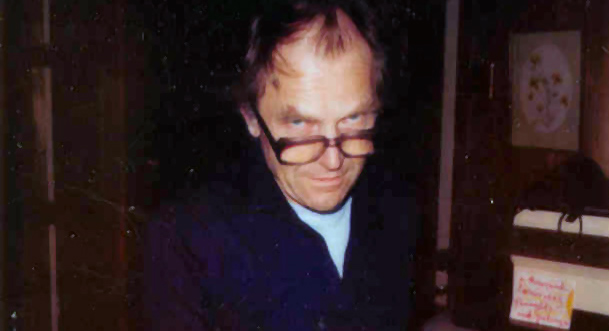
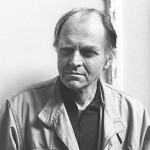
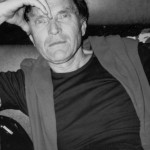
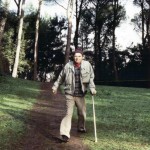

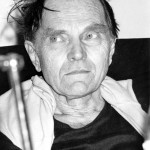
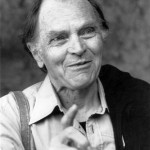



Solo ver un par de sus títulos, contra el método y matando el tiempo, inmediatamente te seduce la invitación a su lectura que se anticipa interesante por irreverente en contra de las visiones tradicionales de la vida y la ciencia
Aunque aun no he leído su obra digamos docta, su libro “matando el tiempo” es un nexo hacia un ser humano fascinante, vive en su obra y ! como vive !, soy un lector de ingente cantidad de obra científica mayormente sobre Física y Astronomía y a través de una Lee Smolin he llegado al S. Feyerabend ! que gran descubrimiento ! no se que me impacta mas si su gran humanidad o su agudísima inteligencia
Uno de los personajes que los profesores de filosofía de la ciencia prefieren evadir.
Gran hombre que postuló su tesis CONTRA EL MÉTODO.